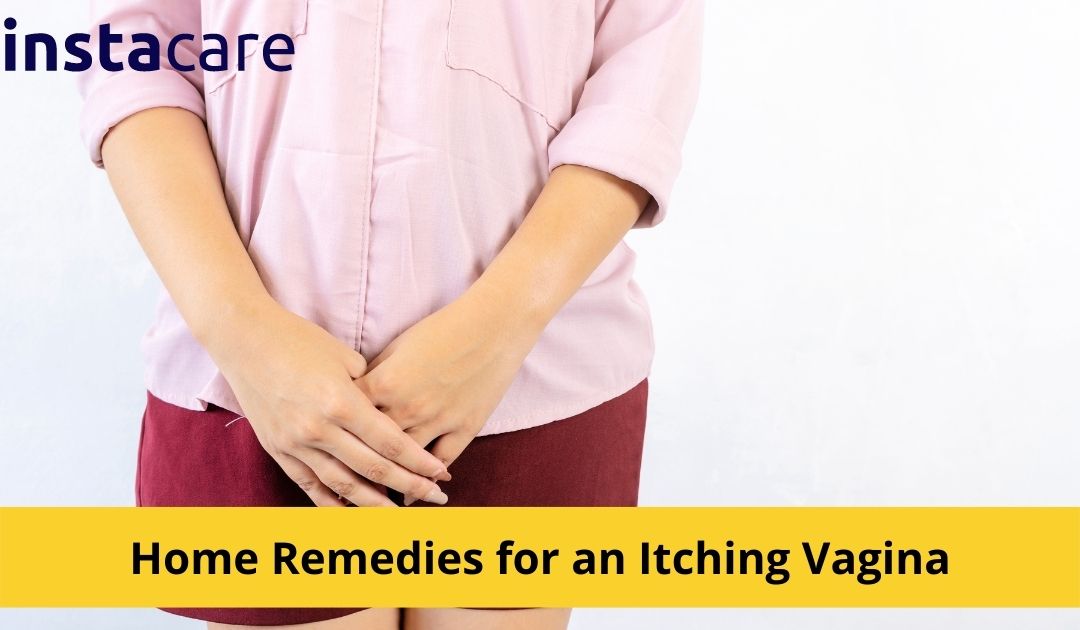Itching is a highly bothersome complaint. Unsanitary settings primarily cause this problem, but it can also be caused by the misuse of chemicals, narcotics, and medications. A woman may also experience adjectival itching as a result of infections or periods of days that are disrupted.
Many other factors associated with sexually transmitted diseases, or STDs, can be itching and skin irritation. Vaginal itching can occur due to stress or vulvar cancer in rare cases.
Life-Threatening And Inconvenient
Itching can become life-threatening and inconvenient. Try to see your doctor or the best gynaecologist in town if you are experiencing this intolerable situation.
When you have an itching condition, you should know that a yeast infection causes it. I can explain that it is a condition where there is no discharge, just itchy, yet you are highly irritated by it. It would help if you were recommended for antifungals. There are numerous causes of this itching Instead of giving benefits. If you do not treat your vaginal area, it can cause much harm.
Perhaps for each, itching is prevalent and occurs in all females. Itching that does not stop for an extended period must be pretty severe.
Reasons For Itching
The following are some of the causes of itching in the private area:
Irritants
Vaginal itching can be caused by exposing the vagina to irritating chemicals. These irritants can cause an allergic reaction, resulting in an itchy rash on numerous parts of the body, including the vagina. So it would be best if you avoid contact with these irritants. Chemical irritants that are common include:
- Baths with soap bubbles
- feminine sprays
- Douches
- Creams
- Ointments
- Detergents
- Fabric softeners
- Scented toilet paper
Lice In Public
These small, crab-like critters itch intensely in the vaginal and pubic areas. They typically adhere to pubic hair. They may also cling to coarse-haired parts of the body.
View More: How To Get Your Periods Faster
Remedy
Pubic lice can be treated with a lice-killing cream purchased over the counter. In difficult situations, topical prescription medicine may be required.
Changes In Hormones
Your estrogen levels decrease as you age. Nursing also lowers estrogen levels. Low estrogen levels can cause your vaginal lining to weaken, causing discomfort and irritation. Symptoms should disappear once you stop breastfeeding and estrogen levels return to normal.
Anxiety
Although uncommon, physical and emotional stress can induce vaginal itching and discomfort. It could happen if stress affects your immune system, making you more susceptible to infections that cause itching.
Menopause
Women going through or have already gone through menopause are more likely to have vaginal itching. This is related to decreased estrogen levels during menopause, which causes vaginal shrinkage. This is a thinned mucosa that can cause extreme dryness. If you do not cure the dryness, it might create itching and irritation.
Vaginal Itching Remedies
You must be wondering how to stop itching down there, which is an often asked issue among men and women.
Proceed with the home remedies and the doctor's recommendations, whichever is more appropriate for you.
Antibiotics
Antibiotics are frequently used to treat BV. These can be medications you consume or creams you apply to your vagina. Whatever treatment you select, you must follow your doctor's instructions and finish the entire medicine course.
Estrogen Creams
Estrogen cream, pills, or a vaginal ring implant can be used to relieve itching caused by menopause.
STDs
STDs are treatable with antibiotics, antivirals, and antiparasitic. You must take your meds regularly and refrain from sexual activity until your infection or sickness has cleared.
View More: Is It Normal To Have Lower Abdominal Pain In Pregnancy
Home-Based Remedies
- Wash your genital area with warm water and a gentle cleanser.
- Scented soaps, lotions, and bubble baths should be avoided.
- Vaginal sprays and douches should be avoided.
- After swimming or exercising, change out of wet clothing.
- Change your underwear every day and wear cotton underwear.
- Consume yoghurt with live cultures to minimize your risk of yeast infections.
- During sexual intercourse, use condoms.
- After having a bowel movement, always wipe from front to back.
Time To Visit Your Doctor
Your doctor will inquire about your symptoms, particularly the severity and duration. They may also ask about your sexual behaviours. A pelvic examination will almost certainly be required. During a pelvic examination, your doctor will visually evaluate the vulva and may use a speculum to see inside the vagina. Or perform lab test from any lab to examine your disease.
A sample of skin tissue from your vulva or a sample of your discharge may also be collected for analysis by your doctor. Your doctor may also order blood or urine testing.
Please book an appointment with the best Gynecologist in Lahore, Karachi, Islamabad, and all major cities of Pakistan through InstaCare, or call our helpline at 03100002273 to find the verified doctor for your disease.
FAQs
Q: Why is the cervix itchy but not discharged?
A: There are several possible causes of an itchy vagina or vulva with no discharge. Razor burn, dermatitis, and pubic lice are examples of these. Some home cures, such as wearing permeable underwear and bathing in oatmeal, can help alleviate symptoms.
Q: Is sperm capable of causing itching?
A: Skin contact with sperm and sex can cause symptoms of a sperm allergy, such as itching, pain, and swelling.
Q: How do I stop my private part itching at night?
A: Follow these instructions
- Taking an oatmeal bath before bed.
- Using topical anti-itch creams on the vulva.
- Placing towel-wrapped ice packs on the vulva.
- Using a topical antihistamine.
- Trying OTC antifungal treatments for yeast infections.












